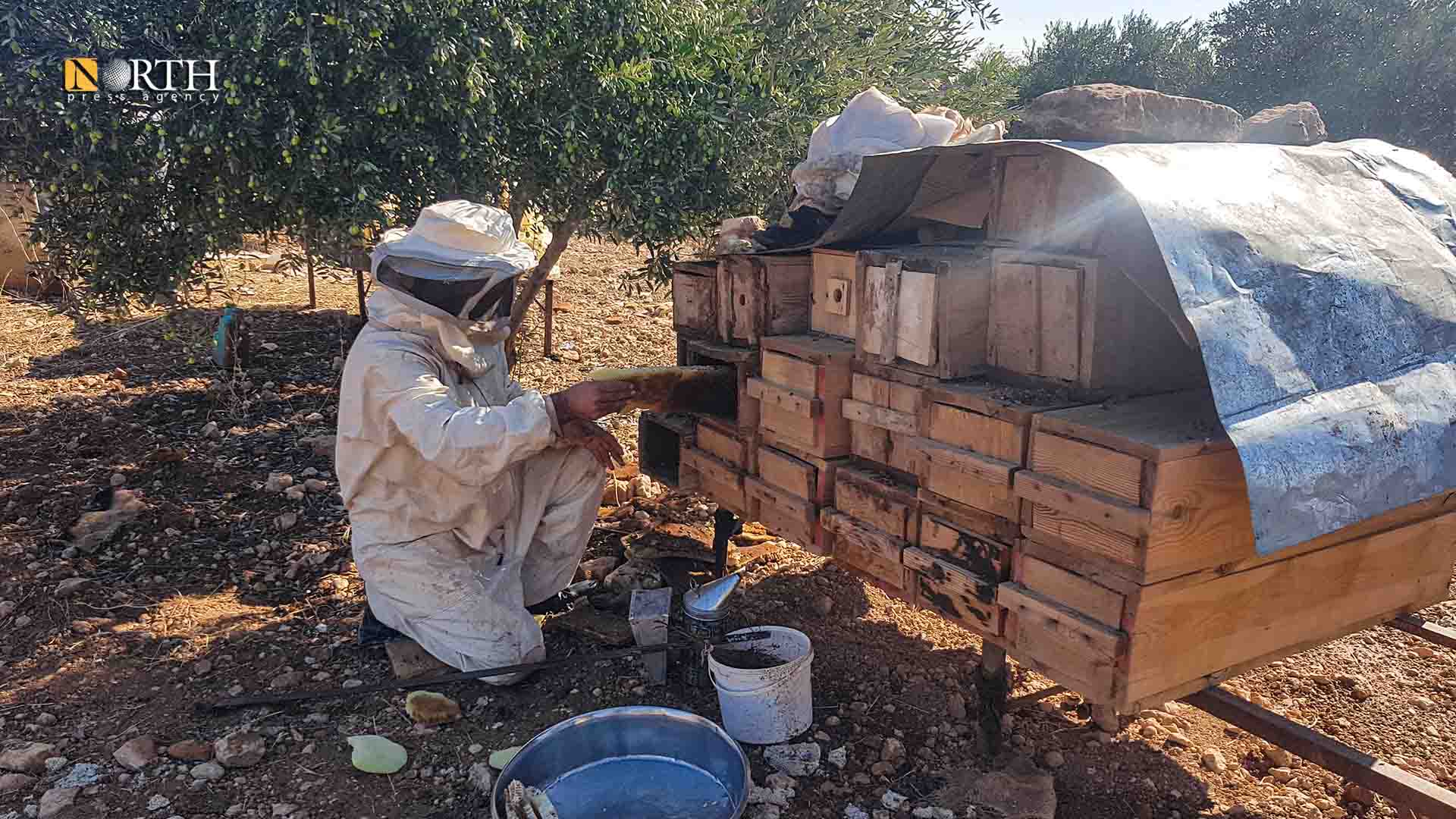
KOBANI, Syria (North Press) – The village of Boban, 15 kilometers west of Syria’s Kobani, is locally famous for producing some of the purest honey. For over a decade, Sha’aban Baki has been working in beekeeping, a profession that he inherited from his ancestors.
Baki has 50 beehives; one of his brothers has 170 while the other has 100, bringing the number to 700 in the village.
The village’s production of honey has been very little this year due to the absence of plant cover from a lack of rainfall, the young man stated. “During the year, when it rains in April and May, frost is formed and plants grow, especially the sun spurge plant that increases the honey production,” Baki says.
The production of large beehives reaches about ten kilograms annually, while other beehives produce four to eight kilograms. But this year, most beehives produced a half kilogram, which is not enough for the bees’ winter sustenance and may kill them, he added.
Beekeepers buy each wooden beehive for ten dollars in spring, which is mating season for bees, in order to increase the number of beehives; each beehive produces the equivalent of four beehives in spring, according to beekeepers.
Bees feed mainly on sun spurge plants mainly in the countryside of Kobani while they feed on sesame, corn, cucumber, cotton, and vegetables in the river areas, Baki said.
Honey prices decreased during the years of Syrian war. In 2010, each kilo of honey was sold at 500 Syrian pounds (SYP), which equalled a gram of gold, while it has ranged between 25 and 30 SYP and each gram of gold was sold at about 130,000 SYP recently.
During the war against ISIS in 2014, “before we fled to Turkey our family had about 200 beehives, but they were destroyed due to the cold weather and being vulnerable to rainfall after ISIS militants extracted the honey, leaving the beehives open,” said Baki.
“Only six beehives were left that were enough to start again,” he added. The only thing that the beekeeper asked the agriculture Board of the Autonomous Administration for was to secure lice pesticides, since beekeepers needed to spray pesticides three times a year.
Before the war, honey production in Syria reached about 3,000 tons annually, but it later declined to only 600 tons. While during the past three years, honey production increased by 25%, according to the Arab beekeepers’ union in Syria.
Beekeper Muslim Mamo said that his uncles gave him beehives and he took care of them until they became 25. “This year was bad regarding the bees, and the production was little,” Mamo said.
There are two species in the area including the managed and wild bees; however the only kind in Boban village is the wild bee. The managed bees produce industrial-grade wax while the wild bees produce the plant wax.
“Feeding bees with sugar increases the production; however, it is considered cheating. Boban is famous for pure honey so we cannot change the good reputation that we inherited from our ancestors,” he added.
The pure honey is similar to homemade ghee, according to Mamo. He also believes that breeding a number of beehives can secure a livelihood for a family if the agricultural season is good and accompanied by spring rains.
